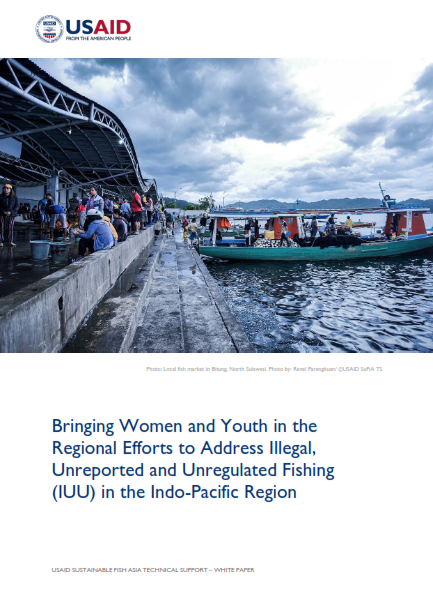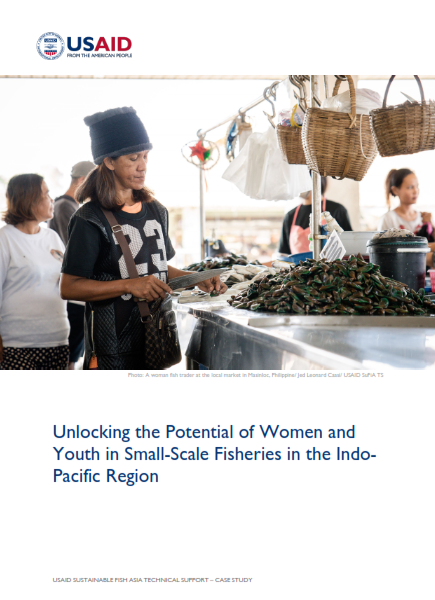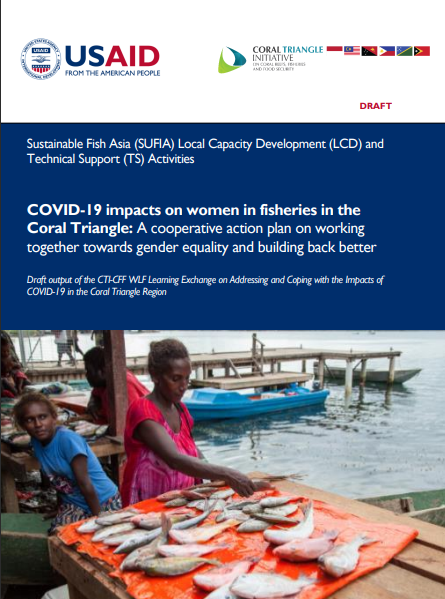Investment opportunities for Nature-Based tourism in Coral Triangle destinations
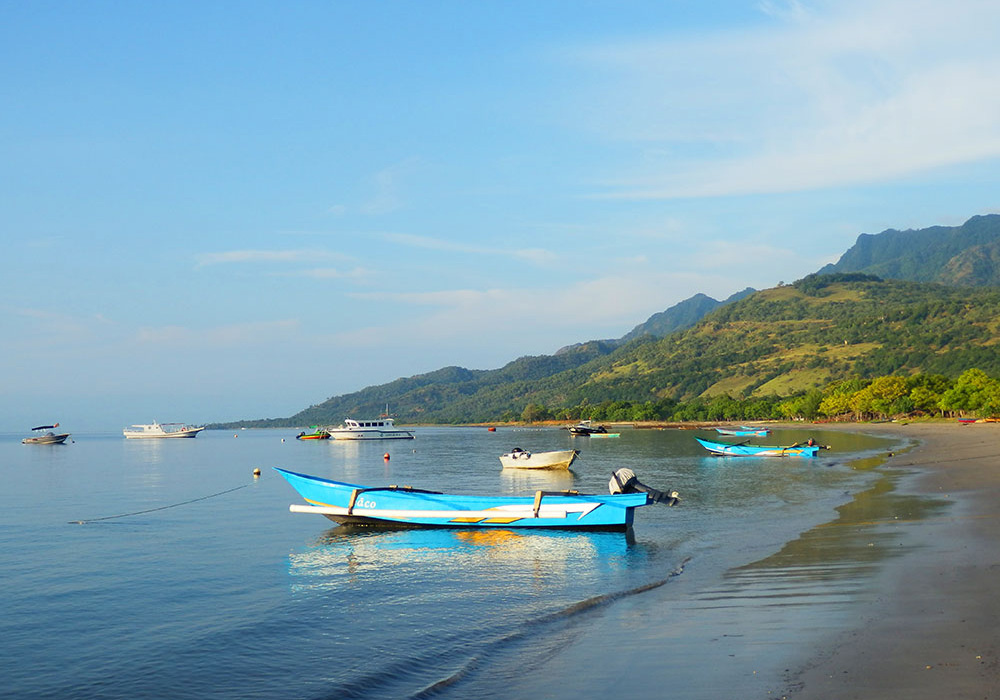
A Fishing canoe at Atauro Island, Timor- Leste. (Photo credit: Carl Solomon/Destinatiion Marketing Store)
By Lida Pet-Soede PT Hatfield Indonesia
Since the establishment of the CTI-CFF in 2009, popular media and scientific papers have come out to confirm something that hundreds of thousands of travellers to the Coral Triangle already knew: Coastal areas, islands and the village communities and wildlife around this vast region provide plenty of opportunity for action-packed adventures, special encounters with different cultures and unique ways to be inspired by the beauty of this regions’ biodiversity and people.
Tourism has become an economic growth engine and vehicle for development in the region. This has not come without negative impacts particularly in mass tourism destinations but fortunately, ‘nature-based’ and ‘eco’ tourism have also seen rapid growth. Nature-based and adventure tourism are growing annually by 10-30%, currently accounting for up to 25% of the world’s tourist market according to the UNWTO. This provides an argument to minimize impacts of mass tourism in areas with high conservation value and invest instead in the preservation of natural areas and support for community stewardship over their reefs and coastal environments.
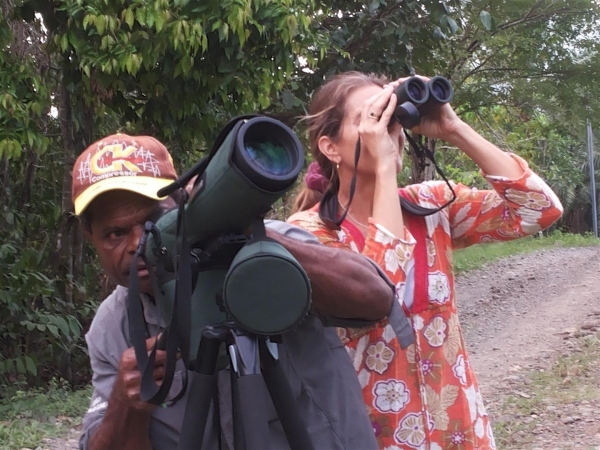
Bird watching with Joseph (Photo credit: Jackie Thomas of WWF)
In recent years, tourism related coastal developments increased rapidly across the region, particularly in areas of high conservation value that appeal to the visitor looking for a beach holiday “off the beaten track” or scuba-diving. This is due to many factors, including increased accessibility of some areas from airport or harbor infrastructure developments and the demographic growth of financially-able domestic and international travellers. However, rapid and poorly planned coastal development is putting pressure on available resources and polluting coastal ecosystems. The very developments that are being established to entice visitors can damage the very resources the visitors are coming to see.
As the six CTI-CFF countries are at varying stages of tourism development (http://wwf.panda.org/what_we_do/where_we_work/coraltriangle/publications/?260690/Developing-and-Promoting-Sustainable-Nature-based-Tourism-in-the-Coral-Triangle), the wide range of benefits and risks inherent with tourism can be found in each country. Whilst each has unique challenges and opportunities, the CTI-CFF provides a unique opportunity to work together and use the growing potential of Coral Triangle tourism to benefit conservation of important places and provide for community needs.
A key objective of the CTI-CFF is to encourage industries that depend on the Coral Triangle’s resources to co-invest in the ocean’s natural capital, thereby securing their business. Examples do exist of low impact, low volume, sustainable, high value or high profile nature-based tourism in the Coral Triangle. These range from small-scale local enterprises catering to the backpacker market, to high-end eco-lodge, cruise and liveaboard operations. The low-end local enterprises tend to serve a small not-well organised market of backpackers and more adventurous travellers that go to great lengths to visit remote areas where nature and wild life are relatively untouched. Some of these enterprises are initiated by local communities or engage local communities throughout the enterprise. Conversely the higher-end operations existing in the region have generally been developed with international investment, establishing their brand through marketing the unique high value nature and community related experience for elite travellers.
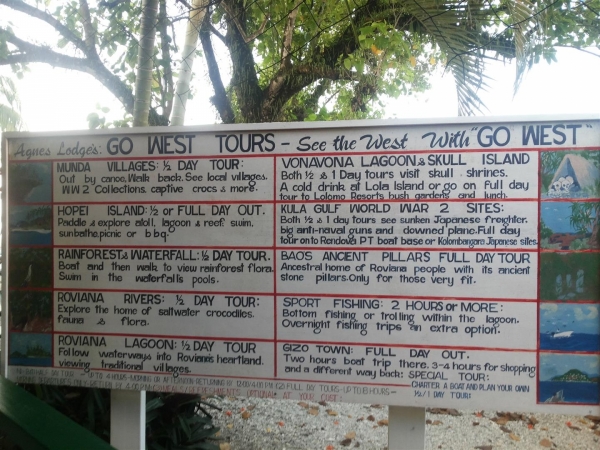
Tourism trips on offer near Munda in the Western Province, Solomon Islands. (Photo credit: Lida Pet-Soede/PT Hatfield Indonesia)
There is an important opportunity to increase understanding of the importance for governments and private sector to invest in protecting the natural capital of the Coral Triangle for tourism benefits. Such investors can benefit from a regional profile that positions this region as offering the world’s best sustainable coastal and marine tourism experiences with environmental, economic, social, and cultural benefits involving communities, governments and private enterprise.
Developing and Promoting Sustainable Nature-based Tourism in the Coral Triangle is an Australian government-funded initiative implemented by WWF. It aims to assist the six countries of the Coral Triangle to develop a long-term regional approach to more sustainable tourism that supports the protection and sustainable use of high conservation value places. It provides an opportunity to harness a dynamic tourism industry to preserve one of the world’s most unique ecosystems and areas while providing benefits to people and communities.
As a first step, sites have been identified in Timor-Leste, Solomon Islands and Papua New Guinea, selected for their high marine conservation value and low levels of existing tourism development. All three countries have the natural assets required to support nature-based tourism. Papua New Guinea and Solomon Islands have very high levels of endemic birds and terrestrial wildlife, and in all three countries natural areas are very extensive. With relatively low populations - compared to countries such as Indonesia, Malaysia, and the Philippines - the wilderness in these countries is mostly uninhabited, and in most places undisturbed and in its original state. In all three countries, tourism has been identified as an important sector for development. Tourism ministries have dedicated budgets and staff resources to implement and review multiple-year tourism strategies that focus primarily on the careful development of conditions to ensure that development supports benefits for communities and businesses through nature-and culture-based tourism. In fact, Atauro Island in Timor-Leste was recently awarded as one of the 100 Global Green Destinations (http://greendestinations.info/top100-2016/?dest=atauro-island).
From Nov 22-24 in Manila, the Asian Dvelopment Bank will organize the first Green Business Forum for Asia and the Pacific (https://www.adb.org/news/events/first-green-business-forum-asia-and-pacific) with the aim to bring together experts, business practitioners, and key stakeholders to share knowledge and identify avenues for promoting green business solutions in the region. Within this program, on Thursday November 24, the ADB and WWF will co-organise a session dedicated to discussing investment opportunities in Nature-Based Tourism development in the Coral Triangle with a focus on marine related tourism destinations in Timor-Leste, Papua New Guinea and Solomon Islands.
The wheels of sustainable nature-based tourism in the Coral Triangle have started to turn and we hope to gain more momentum as we enjoin more partners to contribute to this worthwhile endeavor to ensure the welfare of nature and people in this globally-significant region.

